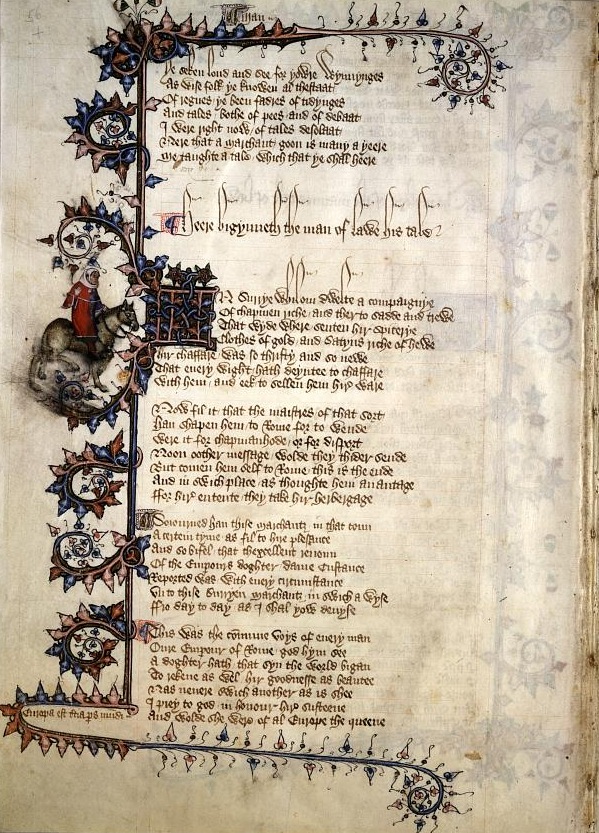
Course Description:
We will consider what is Chaucerian about Chaucer, limiting our attention to the Canterbury Tales, to pose not only the question of the author function as a program of canon-formation in Chaucer but the signature and the genre of autobiography as well. Taking Jacques Derrida's notion of the "animot" and the genre of "auto-bio-biblio-zooto-graphy" as our point of departure, we will follow Chaucer's inscription of his "auctorite" and sovereignty" in a semantic, sensible, and sonic zone of indistinction or alterity between the philosophically and biological "givens" of the human (subject) and the animal. Rather than focus on the themes of "social" and "sexual" Chaucer, the talking animal in Chaucer, or the genres of the epic and the fablau, we will return to (be/late/d) deconstruction to examine the genre and politics of CT as Chaucer's "auto-bio-biblio-zooto-graphy, deconstructing the animal and human largely in terms of speech and reading and in or to recognize what, combining Giorgio Agamben and Derrida, I call "homanimo(t) sacer." We will focus both on the dis/continuously departing, digressive, destinterred, never to arrive narrative or to be finished structures of Tales and the artful breaking / break up of speech into "noise" as a mode of making the CT edible (not so well, necessarily). We also examine Chaucer's signature from the perspective of what criticism has considered to be "bad" and "good" Chaucer as well as from some early from the perspective of what is now called Chaucer apocyphra. Finally, we will watch a few Chaucer related films. In addition to the CT and some of Derrida's later writings, our reading beastiary will include selections from Louis Marin's Food for Thought, fables by La Fontaine and the fairie tale Donkey-Skin by Charles Perrault, Jill Mann's From Aesop to Reynard: Beast Literature in Medieval Britain, and from Peter Travis, Disseminal Chaucer.
"At the moment, and including in a single embrace, Descartes,Kant, Heidegger, Levinas, and Lacan, as a single living bbody at botom, indeed, as a single corpus delicti, the mobile system of a single discursive organization with several tentacles, I have the impression that I am myself trying to gain--as through wrestling, finshing, or hunting--a sufficiently expert of knowedegable purchase [prise] on what might touch the nervous sysem of a single animal body. A little like someone who would claim to know which way to take hold of a cuttlefish or octopus, without hurting it too much, and especially without killing it, keeping it at a distance long enough to let it expel its ink. In order to displace its powers without doing anybody too much harm. In order to displce it Its ink or power here would be the "I," not necessarily the power to say "I" but the ipseity of being able to be or able to do "I," even before any autoreferential utterance in a language."
--J.D.
